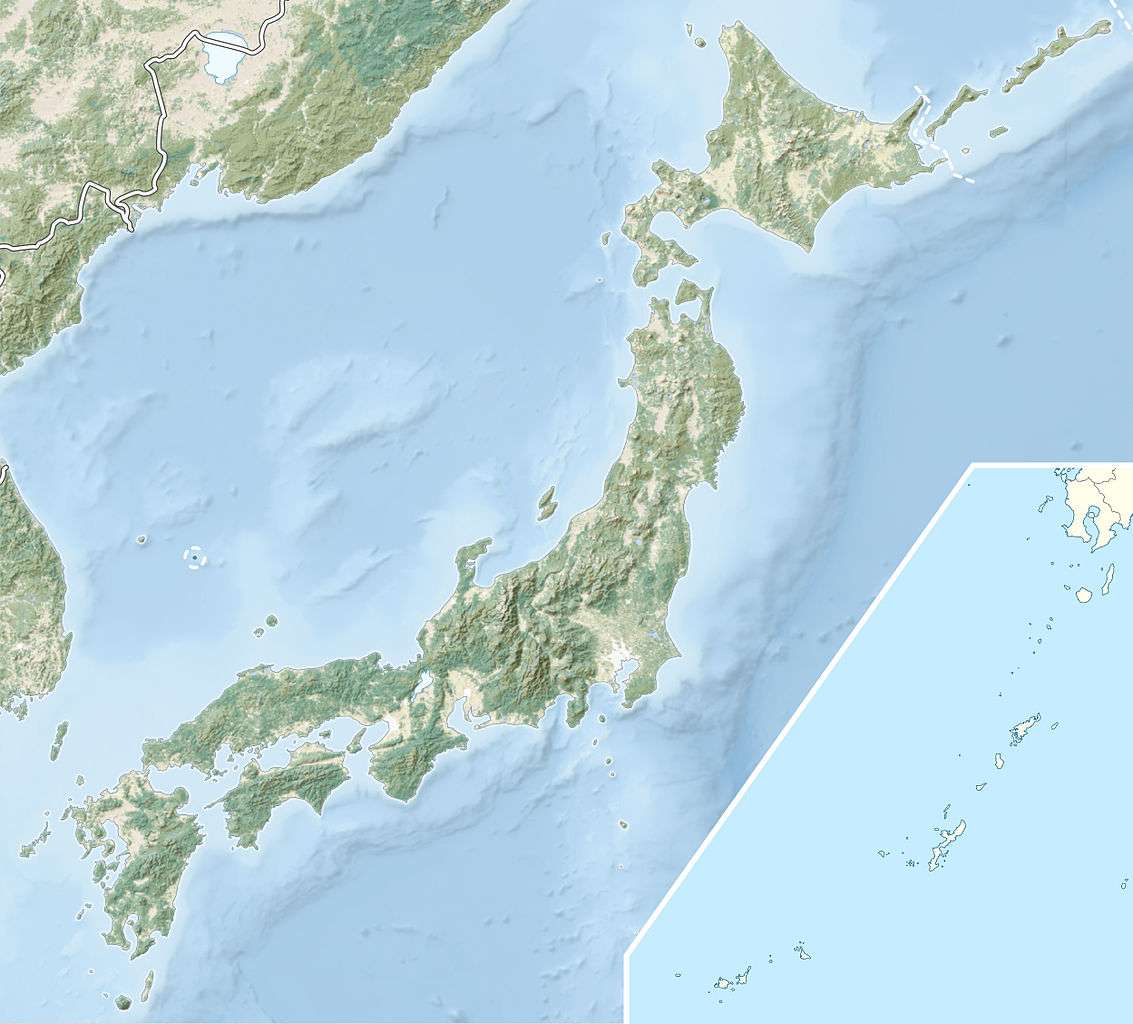Shimogo Pumped Storage Power Station
| Shimogo Pumped Storage Power Station | |
|---|---|
 | |
 Location of Shimogo Pumped Storage Power Station in Japan | |
| Country | Japan |
| Location | Shimogō, Minamiaizu, Fukushima Prefecture |
| Coordinates | 37°20′42.2″N 139°54′30.0″E / 37.345056°N 139.908333°ECoordinates: 37°20′42.2″N 139°54′30.0″E / 37.345056°N 139.908333°E |
| Status | Operational |
| Construction began | 1974 |
| Commission date |
1988[1][2] 1991 (complete) |
| Operator(s) | J-Power |
| Pumped-storage power station | |
| Upper reservoir | Ouchi Dam Reservoir |
| Upper res. capacity |
18,500,000 m3 (15,000 acre·ft) (total) 16,000,000 m3 (13,000 acre·ft) (usable) |
| Lower reservoir | Wakasato Lake |
| Lower res. capacity |
57,500,000 m3 (46,600 acre·ft) (total) 44,500,000 m3 (36,100 acre·ft) (usable) |
| Hydraulic head | 387 m (1,270 ft)[3] |
| Pump-generators | 4 x 250 MW reversible Francis turbines[2] |
| Power generation | |
| Nameplate capacity | 1,000 MW (1,300,000 hp) |
The Shimogo Pumped Storage Power Station (Japanese: 下郷発電所 Hepburn: Shimogō Hatsudensho) is a large pumped-storage hydroelectric power plant in Shimogō, Minamiaizu, Fukushima Prefecture, Japan. With an installed capacity of 1,000 megawatts (1,300,000 hp), the system is one of the largest pumped-storage power stations in Japan.
The facility is run by Electric Power Development Company (J-Power).[1] Like most pumped-storage facilities, the power station uses two reservoirs, releasing and pumping as the demand rises and falls. The Ouchi Dam Reservoir, formed by the Ouchi Dam, is the upper artificial reservoir, while Okawa Dam forms the lower reservoir.
Ogawa Dam is a rockfill-concrete gravity combined dam, with a height of 75 m and a lenght of 406 m. Construction on the dam started in 1971 and was completed in 1987.[2] The dam is also used for flood control, irrigation, and domestic and industrial water supply.[4] Ouchi Dam is a rockfill dam with a height of 102 m and a length of 340 m. Construction started in 1974 and was completed in 1991.[2] The power plant employs four 250 MW pump/generator units, for a total net capacity of 1000 MW. The maximum water flow is 314 cubic meters per second.[3] Unit 1 and 2 became operational in April 1988 after the completion of the Okawa Dam.[5] Units 3 and 4 were commissioned in 1991.
The station includes a visitor center with a model of the power station and media to explain its operation.[5]
A smaller conventional hydroelectric power plant, the Ogawa hydroelectric power plant (大川発電所 Ogawa Hatsudensho) is in operation downstream of Ogawa Dam since May 1986. The plant, operated by Tohoku Electric Power Company, has an installed capacity of 21 MW and an effective head of 56 m. The maximum water flow is 45 cubic meter per second.[4] The plant operates with a single Kaplan turbine.[2]
 The Ouchi Dam upper reservoir
The Ouchi Dam upper reservoir Wakasato Lake (lower reservoir)
Wakasato Lake (lower reservoir) Okawa Dam, at the lower reservoir
Okawa Dam, at the lower reservoir
See also
- List of power stations in Japan
- Hydroelectricity in Japan
- List of pumped-storage hydroelectric power stations
Notes
- 1 2 "J-POWER | International Activities | Our Facilities". www.jpower.co.jp. Retrieved 11 November 2016.
- 1 2 3 4 5 "水力発電所ギャラリー 電源開発下郷発電所 - 水力ドットコム". www.suiryoku.com. Retrieved 11 November 2016.
- 1 2 "Operating and Financial Data" (PDF). www.jepic.or.jp. JEPIC. Retrieved 11 November 2016.
- 1 2 "大川ダムの役割". www.hrr.mlit.go.jp. Retrieved 11 November 2016.
- 1 2 "電源開発(株) 下郷発電所 | 社会科見学 全国施設一覧". www.kengaku-jp.net. Retrieved 11 November 2016.